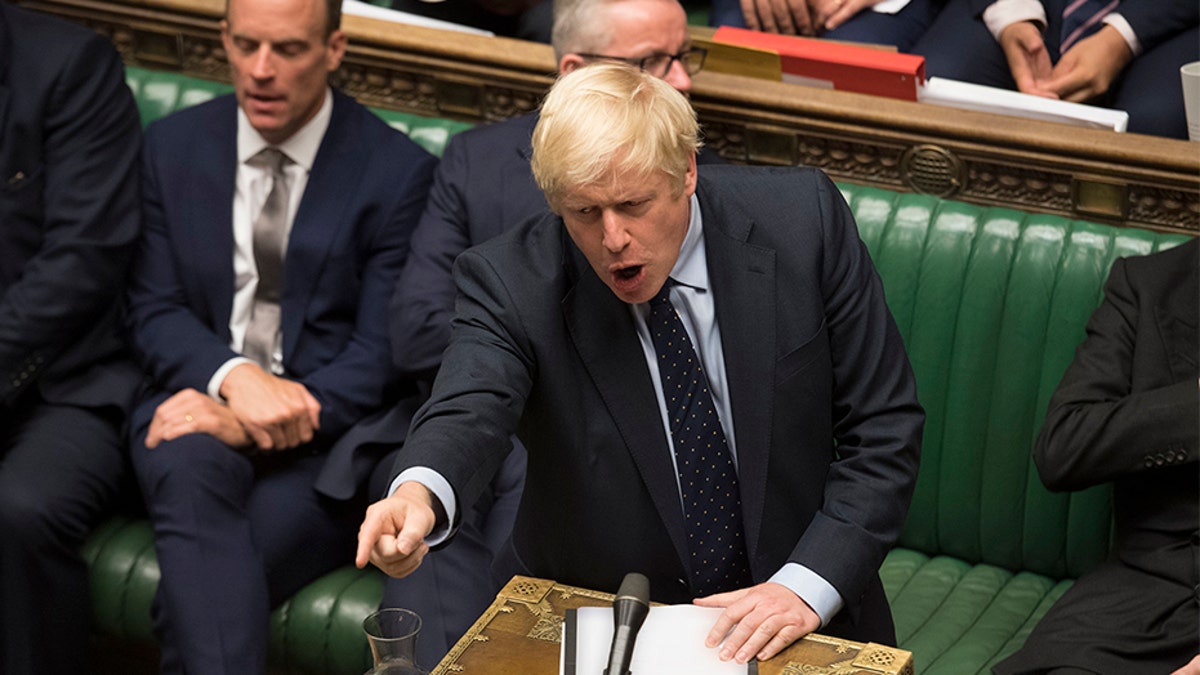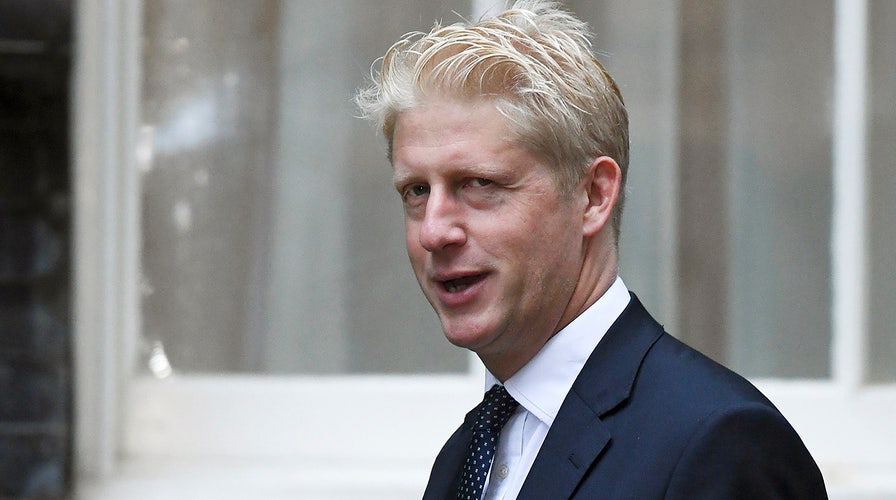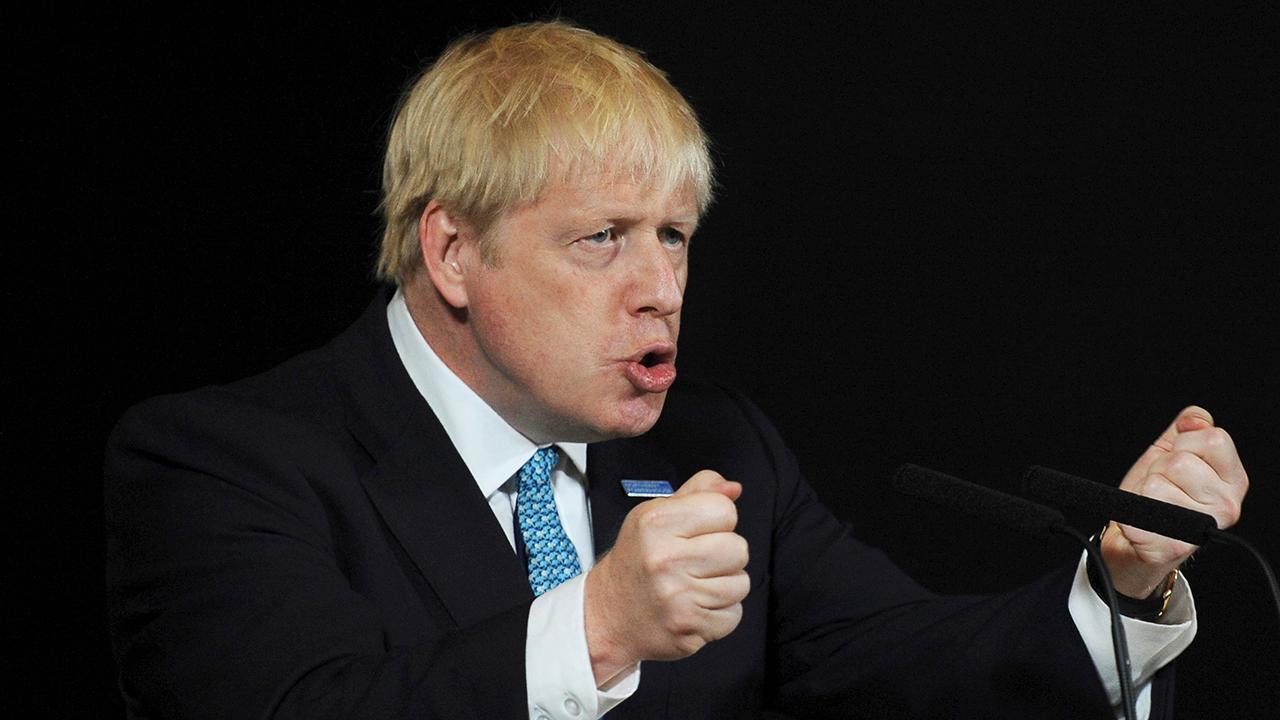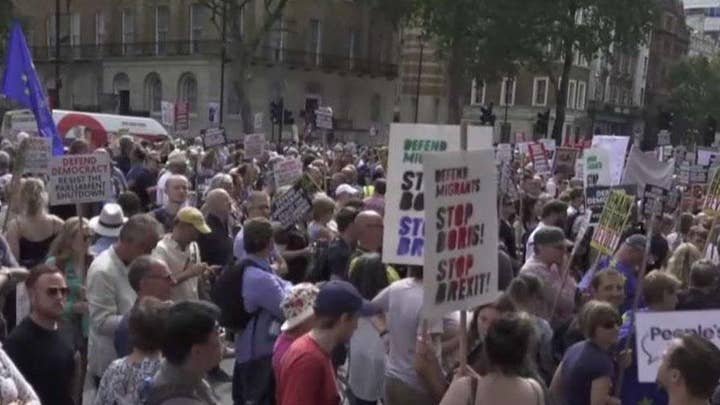Boris Johnson's brother resigns from Parliament amid Brexit tensions
Jo Johnson says he has been 'torn between family loyalty and the national interest'; Amy Kellogg reports from London.
British Prime Minister Boris Johnson was dealt a new blow when his brother, Jo Johnson, quit Parliament over the ongoing divide over the Brexit impasse.
Jo Johnson announced Thursday morning that he was stepping down from Parliament because he was “torn between family loyalty and the national interest.”
“It’s an unresolved tension & time for others take on my roles as MP & Minister,” he tweeted, saying he was also quitting as an education minister.
Jo Johnson has long opposed leaving the European Union, voting against it in the 2016 referendum campaign. He later said the country should not quit the bloc without a divorce deal – something his brother appears adamant to pass.

FILE - In this Wednesday, Sept. 4, 2019 file photo, Britain's Conservative Party lawmaker Jo Johnson arrives at Downing Street in London. Jo Johnson has announced he is quitting as an education minister and will step down from Parliament, saying he is “torn between family loyalty and the national interest.” (AP Photo/Alberto Pezzali, File)
His resignation from Parliament came as the prime minister went on the attack Thursday after lawmakers opposed his push for a new election in October and advance his plans to prevent the country from leaving the EU.
CHURCHILL'S GRANDSON TO BE EXPELLED FROM CONSERVATIVE PARTY FOR VOTING AGAINST BORIS JOHNSON
The prime minister, who is determined to secure a general election as a way out of Britain's years-long Brexit impasse, is set to argue in a speech later today that politicians must "go back to the people and give them the opportunity to decide what they want."
He had asked Parliament Wednesday to back an Oct. 15 election, after lawmakers moved to block his plan to leave the EU on Oct. 31, even if there is no withdrawal agreement to pave the way. But lawmakers turned down his motion.

Britain's Prime Minister Boris Johnson speaks in the House of Commons in London after MPs voted in favor of allowing a cross-party alliance to take control of the Commons agenda on Wednesday in a bid to block a no-deal Brexit on Oct. 31. (AP/House of Commons)
The prime minister needed the support of two-thirds of the 650 lawmakers in the House of Commons to trigger an election — a total of 434 — but got just 298, with 56 voting 'no' and the rest abstaining.
BREXIT CHAOS: ALL YOUR BIGGEST QUESTIONS, ANSWERED
He slammed Labour Party leader Jeremy Corbyn following the vote, calling the main opposition figure’s refusal to endorse an election a "cowardly insult to democracy."
Corbyn, in response, said Labour would only vote for an early election if the prospect of a no-deal Brexit was taken off the table.
"Let the bill pass and have Royal Assent and then we can have a general election," he said.
Labour economy spokesman John McDonnell said the party wanted an election but was still deciding on whether to seek one before the Oct. 31 Brexit deadline or to wait until Parliament had secured a delay to Britain's departure from the bloc.
"The problem that we have got is that we cannot at the moment have any confidence in Boris Johnson abiding by any commitment or deal that we could construct," he told the BBC.
Johnson's failure to secure a quick ballot was the embattled leader's third Parliamentary defeat in two days. Just six weeks after taking office with a vow to break Britain's Brexit deadlock — which ensnared and eventually brought down his predecessor, Theresa May — Johnson's plans to lead the U.K. out of the EU are in turmoil.
Johnson became prime minister in July by promising to complete Brexit and break the impasse that has paralyzed the country's politics since voters decided in June 2016 to leave the bloc. But he is caught between the EU, which refuses to renegotiate the deal it stuck with May, and a majority of British lawmakers opposed to leaving without an agreement. Most economists, the Associated Press says, believe a no-deal Brexit would cause severe economic disruption and plunge the U.K. into recession.
Opposition lawmakers, supported by rebels in Johnson's Conservative Party, are attempting to pass a bill that would block a no-deal Brexit on Oct. 31, compelling the prime minister to seek a three-month delay to Britain's departure if no exit deal has been agreed by late October.
Johnson has accused the opposition of trying to "overturn the biggest democratic vote in our history," referring to the outcome of the 2016 referendum to leave the EU.
CLICK HERE TO GET THE FOX NEWS APP
The bill was approved by the House of Commons on Wednesday, but faced trouble in Parliament's upper chamber, the House of Lords, where pro-Brexit members planned to defeat it by filibustering — talking until time ran out.
But early Thursday, the Lords agreed to allow the bill to pass through the chamber by Friday, allowing it to become law early next week. Johnson plans to suspend Parliament at some point next week until Oct. 14.
The government said Thursday that it will try again next week to trigger an election. Leader of the House of Commons Jacob Rees-Mogg says a vote will be held Monday on a motion calling for a snap poll.
The Associated Press contributed to this report.









































